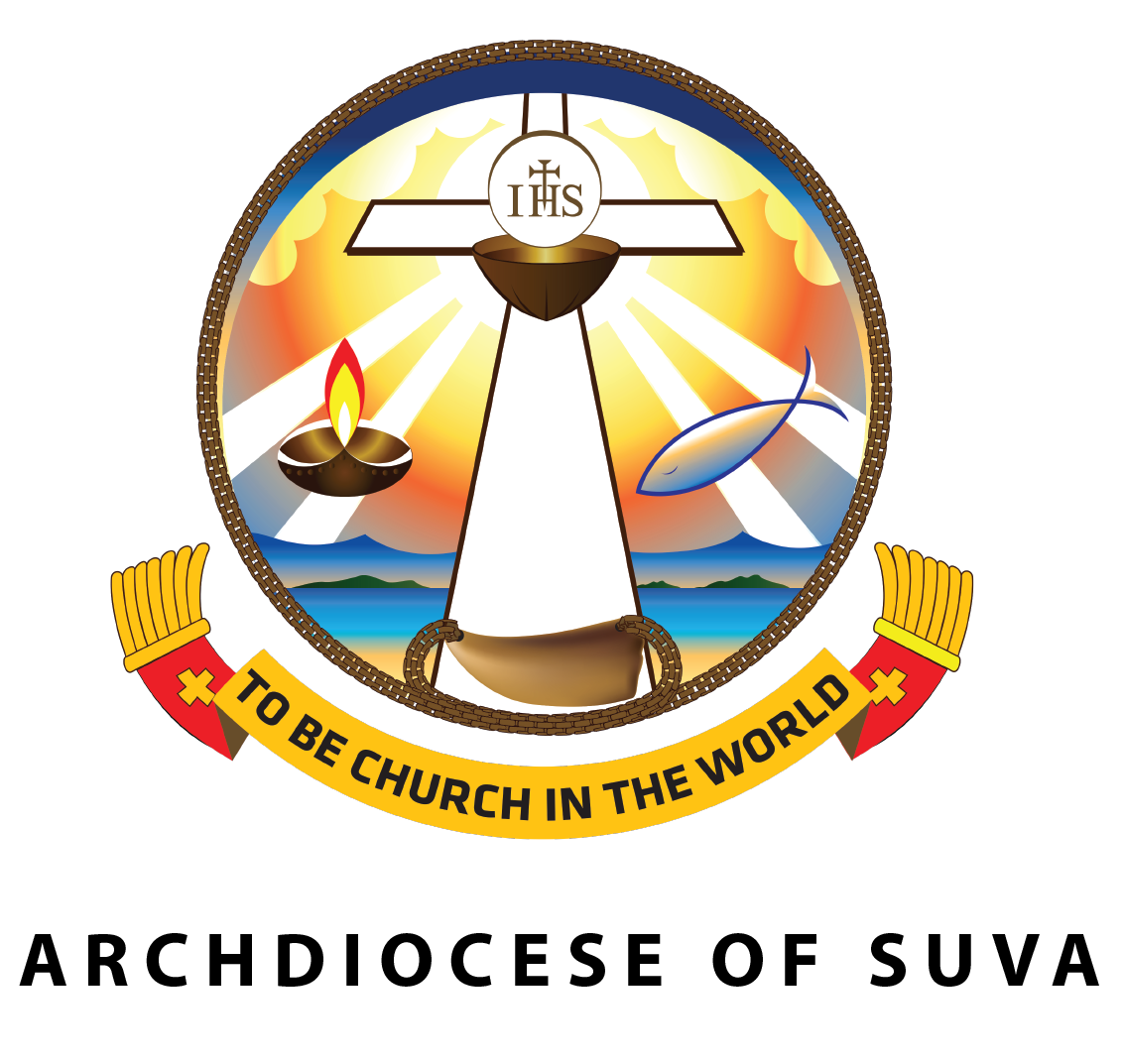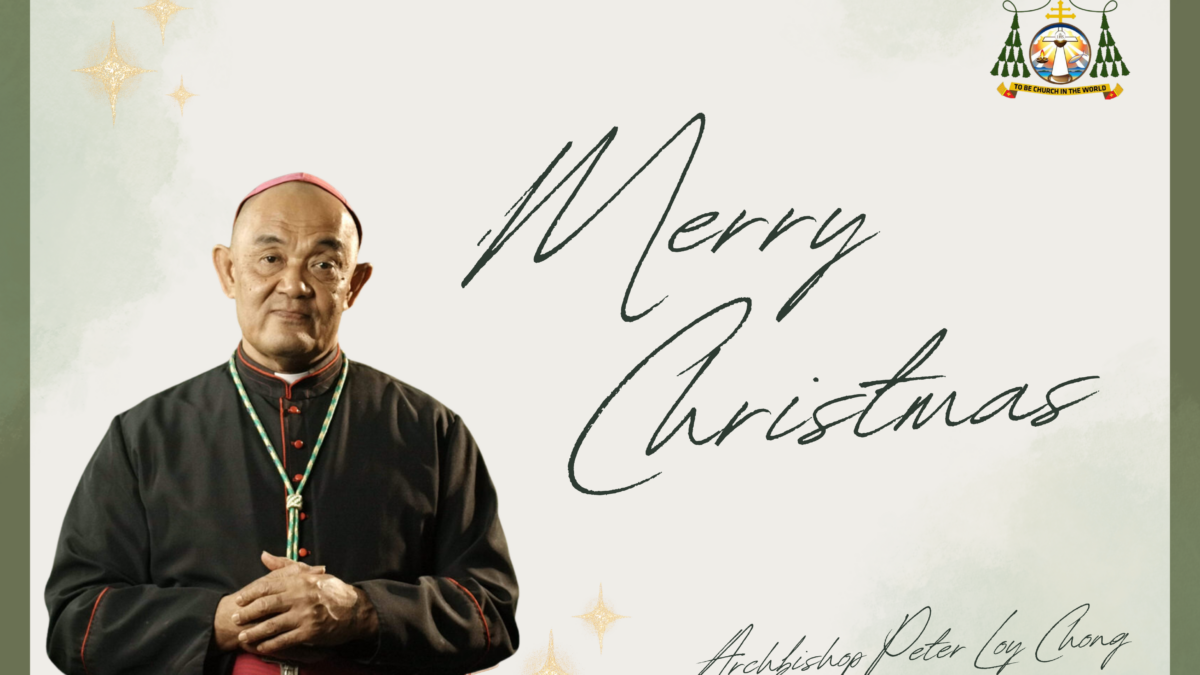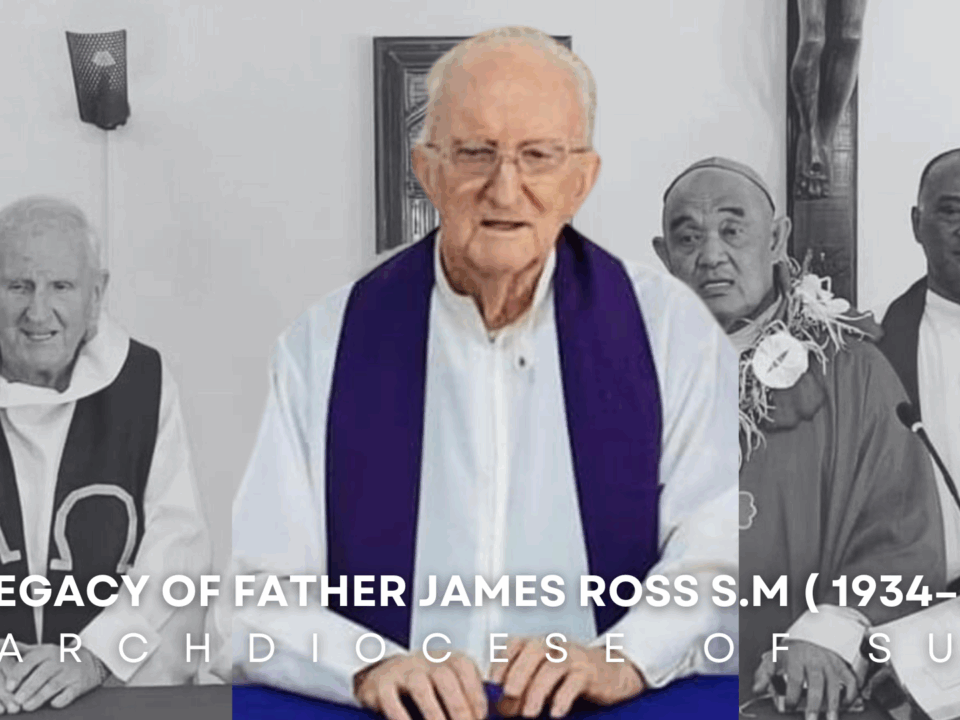2024 Christmas Message from Archbishop Peter Loy Chong.
The story of Jesus did not begin with his birth in Bethlehem, but rather with the Easter Experience.
Jesus was put to death on Saturday (Sabath) evening. On Sunday morning (the first day of the week), the disciples went to the tomb to anoint Jesus’ body according to the Jewish custom. However, they did not find his body. An angel told them, ‘He is not here; he has risen. Remember what he told you when he was still in Galilee: that the Son of man was destined to be handed over into the power of sinful men and be crucified, and rise again on the third day.’
Jesus’ resurrection was not only about the resuscitation of his physical body but it was also about how his Spirit now rises and lives in the lives of his disciples and the early Christian community. The early christian community experienced in Jesus liberation, life and hope. They experienced Jesus as the Christ, the anointed one, the messiah, and Son of God. In Jesus they found life that was worth living and dying for. The Easter experience charged them with a mission to proclaim the good news of Jesus Christ. Thus the Easter experience saw the beginings of the Jesus story.
From the Empty Tomb to the Manger
The story of Jesus was first proclaimed orally. The message was simply that Jesus who was crucified and died is now risen. He is the Messiah, the Christ, the Son of God. As the authors of the four gospels, Mathew, Mark, Luke and John began to write about the life, teachings, and his ministry they began to include the earlier parts of the life, particularly his ancestral origins and birth. Only Mathew and Luke’s Gospels record the story of the birth of Jesus and they are the primarysources of the story of the birth of Jesus.
Mathew’s Gospel
Mathew presents Jesus’ genealogy making him a descendant of Abraham and David. The genealogy locates Jesus in the Jewish Salvation history. As expected of a patriarchal society, Mathew lists the men who were part Jesus’ genealogy. Surprising, the genealogy records four women (Tamar, Rahab, Ruth, Bathsheba) who were known to be sexually scandalous. These women also played an important role in Jesus’ genealogy and God’s plan. Mary, the mother of Jesus also gave birth in an extraordinary circumstance. The inclusion of these women shows that God works even in the crooked and messy lines of human history.
The genealogy presentation format changes when Mathew introduces Joseph. Rather than introducing Joseph as the father of Jesus, Mathew introduces Joseph as the husband of Mary of whom Jesus Christ-the Messiah was born. Joseph is of the house of David. In Mathew’s gospel, the angel appears to Joseph instructing him to take Mary as his wife. Mathew makes an important point about Jesus’ identity, namely that he is Son of David as well as Son of God.
Luke’s Gospel
Luke does not record the genealogy of Jesus; instead, he begins with the Angel appearing to Zechariah to announce the birth of John the Baptist. Zechariah and his wife Elizabeth are in their old age and they longed to have a child. John’s birth follows the story of some old couples in the Old Testamentwho conceived a child in their old age. In the Book of Genesis God promises to Abraham and Sarah that they will have child. In the Book of the Prophets (1 Samuel) tells the story of another old couple Elkanah and Hannah who give birth to Samuel.
The two books, Genesis and the Prophets represent the Jewish bible. The birth of John prepares the time of Christ. Birth of John links the three era in Judeo-Christian faith: Law, Prophets, and the time of Jesus. The four gospels all write about John the Baptist because he has an important role in God’s plan.
John’s Gospel
John’s gospel totally omitted the story of the birth of Jesus. Instead, he moves the Jesus story beyond the Judaism history of salvation to include the history of creation. “In the beginning with was the Word: The Word was with God and the Word was God. He was with God in the beginning.” John locates Jesus Christ with God before creation came into being. Jesus the Christ, the Word was in the beginning with God. Jesus the Christ-Word existed before the Jesus of Nazareth.
Message of the Story of the Birth of Jesus
The four gospels have a common intention, to show the relevancy of Jesus to the whole of world history. God is at work from the beginning of creation; Jewish salvation history; the time of Jesus and the future.
Christmas therefore remembers, celebrates and reminds usthat God has been working right from the beginning of the universe, in human history and will guide the future through Jesus Christ. Christmas calls us to work with God for liberation, justice, peace and love. Christmas calls us to read the signs of the times and to interpret them in the light of the gospels.
Today Fiji faces challenges from drugs, past and present political traumas, domestic violence, impacts of climate change and globalization and other social issues. May this Christmas inspire us to reflect and participate in God’s plan, even in the darkest moments of our history.
May you have the peace and joy of Christmas
+ Archbishop Peter Chong




